
AUSA 2021
Rolls-Royce’s AE1107F Engine for Bell’s V-280 Valor Tiltrotor
John Shade, the executive vice president for business development and future programs at Rolls-Royce Defense, with a walk-around of the company's AE 1107F engine for Bell's V-280 Valor tiltrotor at the Association of the United States Army's 2021 conference and tradeshow in Washington, DC. The V-280 is competing for the US Army's Future Long-Range Assault Aircraft competition.

AUSA 2021
Walkaround of BAE Systems’ ARCHER Mobile 155mm Howitzer
Henrik Knape, product manager and head of sales for the ARCHER mobile 155mm howitzer at BAE Systems Bofors, with a walk around of the company's novel artillery system at the Association of the United States Army's 2021 conference and tradeshow in Washington, DC. ARCHER, which is now in service with the Swedish Army, can be ready for action, fire at its target, and get back on the move in less than a 90 seconds. Using smart munitions such as the Excalibur, ARCHER is capable of hitting targets 60 kilometers away and is competing for the US Army contract to replace the service's towed 155mm artillery pieces.

Military & Aerospace History
A NAVAL HISTORY TEST
It is human nature for people to live in the present and thus forget or pay less attention to the past. For example, many think today is the most complex and complicated period in our history with Covid; Great Power Competition with two peer or near peer rivals; and many simultaneous crises whether in the Middle East or vis a vis Iran, North Korea, Syria and other irritants. And for the military services, especially the Navy that maintains an exhausting deployment schedule, dealing with the here and now of immediate personnel, equipment, readiness and operational issues is time consuming.
![DEFAERO Report Daily Podcast [Jul 27, 2020] Weaponizing Space](https://defaeroreport.com/wp-content/uploads/2020/07/Screen-Shot-2020-07-27-at-7.00.10-PM-500x350.png)
DEFAERO REPORT Daily Podcast
DEFAERO Report Daily Podcast [Jul 27, 2020] Weaponizing Space
On this episode of the DefAero Report Daily Podcast, sponsored by Bell, our guest Todd Harrison of the Center for Strategic and International Studies discusses Russia’s recent anti-satellite test during which larger spacecraft deployed a smaller one, implications of a new generation of ground- as well as space-based weapons, how to deter adversaries from attacking US and allied space assets, update on Space Force legislation and budget, and a look ahead to CSIS’ “State of the Space Industrial Base 2020” event at 11 a.m. on Tuesday, July 28 with Defense & Aerospace Report Editor Vago Muradian. Event Registration required--link.
![Defense & Aerospace Report Podcast [Jul 26, 2020 Business Report]](https://defaeroreport.com/wp-content/uploads/2020/07/Screen-Shot-2020-07-26-at-6.33.04-PM-500x350.png)
Monday Business Report
Defense & Aerospace Report Podcast [Jul 26, 2020 Business Report]
On this episode of the Business Podcast, sponsored by Bell, our guests include “Rocket Ron” Epstein, PhD, of Bank of America Merrill Lynch, Richard Aboulafia of the Teal Group consultancy and Sash Tusa of Agency Partners.
![Defense & Aerospace Podcast [Washington Roundtable Jul 23, 2020]](https://defaeroreport.com/wp-content/uploads/2020/07/Screen-Shot-2020-07-23-at-5.12.26-PM-500x350.png)
PODCASTS
Defense & Aerospace Podcast [Washington Roundtable Jul 23, 2020]
On this Roundtable episode of the Defense & Aerospace Report Podcast, sponsored by Bell, our guests are Byron Callan of the independent equity research firm Capital Alpa Partners, Dov Zakheim, PhD, former DoD comptroller, now with the Center for Strategic and International Studies, Mackenzie Eaglen of the American Enterprise Institute and Michael Herson, President and CEO, American Defense International.
![DEFAERO Report Daily Podcast [Jul 22, 2020]–Bryan Clark](https://defaeroreport.com/wp-content/uploads/2020/07/Screen-Shot-2020-07-23-at-10.38.42-AM-500x350.png)
DEFAERO REPORT Daily Podcast
DEFAERO Report Daily Podcast [Jul 22, 2020]–Bryan Clark
On this episode of the DefAero Report Daily Podcast, sponsored by Bell, our guest is Bryan Clark, Senior Fellow at the Hudson Institute on the stand-up of The Center for Defense Concepts and Technology at Hudson, the intersection of defense operations and new technologies, the upcoming release of the center’s antisubmarine warfare study and the fallout from the recent fire aboard USS Bonhomme Richard.
![Defense & Aerospace Report Podcast [Jul 19, 2020 Business Report]](https://defaeroreport.com/wp-content/uploads/2020/07/Screen-Shot-2020-07-19-at-5.02.11-PM-500x350.png)
Monday Business Report
Defense & Aerospace Report Podcast [Jul 19, 2020 Business Report]
On this episode of the Business Podcast, sponsored by Bell, our guests include “Rocket Ron” Epstein, PhD, of Bank of America Merrill Lynch, Richard Aboulafia of the Teal Group consultancy and Sash Tusa of Agency Partners.

Cyber Report
Northrop Grumman Cyber Report: Fixing Old Problems & New Hacking of Vaccine Manufactures
On this week’s Cyber Report, sponsored by Northrop Grumman, David Zikusoka, research fellow at the Center for Strategic and Budgetary Assessments (CSBA), staff on the U.S. Cyberspace Solarium Commission and member of the national security team in the office of Vice President Joseph Biden, discusses the CISA emergency directive ordering federal agencies to patch a vulnerability in Windows Domain Name System servers and recent reports of Russian efforts to hack companies working on COVID-19 vaccines.
![Defense & Aerospace Podcast [Washington Roundtable Jul 16, 2020]](https://defaeroreport.com/wp-content/uploads/2020/07/Screen-Shot-2020-07-16-at-6.10.25-PM-1-500x350.png)
PODCASTS
Defense & Aerospace Podcast [Washington Roundtable Jul 16, 2020]
On this Roundtable episode of the Defense & Aerospace Report Podcast, sponsored by Bell, our guests are Byron Callan of the independent equity research firm Capital Alpa Partners, Dov Zakheim, PhD, former DoD comptroller, now with the Center for Strategic and International Studies, Patrick Cronin, PhD, the chair for Asia-Pacific Security at the Hudson Institute and Chris Servello, a founder of Provision Advisors (and Defense and Aerospace team member).

VAGO'S NOTEBOOK
The US Navy Must Soul-Search in Wake of Bonhomme Richard Fire
The fire aboard the US Navy amphibious assault ship Bonhomme Richard in San Diego raises profound questions about the competence and capacity of the service and its leadership — with budget, strategy and deterrence implications.
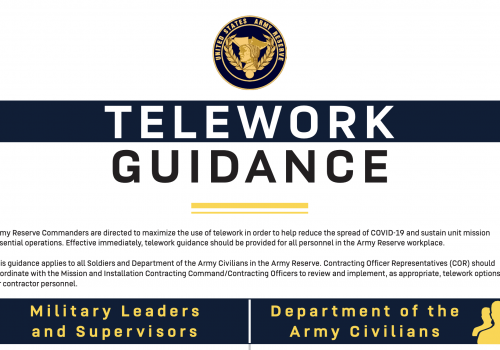
Cyber Report
Cyber Report: Securely Working From Home
On this week’s Cyber Report, sponsored by Northrop Grumman, Michael Speca, the president of Ardalyst, and Josh O’Sullivan, a Navy veteran who’s the company’s chief technology officer, discuss how to ensure security while working from home during the coronavirus crisis with Defense & Aerospace Editor Vago Muradian.
![DEFAERO Strategy Series w/ Bob Work [Apr 04, 2020]](https://defaeroreport.com/wp-content/uploads/2020/04/Screen-Shot-2020-04-04-at-1.25.48-PM-500x350.png)
PODCASTS
DEFAERO Strategy Series w/ Bob Work [Apr 04, 2020]
Welcome to the DEFAERO Andy Marshall Strategy Series, our weekly discussion with leading thinkers on security, business and technology, sponsored by Bell. Our series is named after Andy Marshall, one of America's greatest strategic minds, to mark the one year anniversary of his passing. Our guest is Bob Work, former deputy defense secretary, Distinguished Senior Fellow for Defense and National Security at the Center for a New American Security and the owner of TeamWork, LLC.

Cyber Report
Northrop Grumman Cyber Report: Preventing and Fighting Misinformation
On this week’s Cyber Report, sponsored by Northrop Grumman, Suzanne Spaulding, the former undersecretary for the national protection and program directorate at the Department of Homeland Security who is now the senior advisor for homeland security at the Center for Strategic and International studies, discusses preventing and responding to adversary misinformation.
![DEFAERO Report Daily Podcast [Jul 20, 2020]– CISA Director Chris Krebs](https://defaeroreport.com/wp-content/uploads/2020/07/Screen-Shot-2020-07-20-at-7.13.43-PM-500x350.png)
DEFAERO REPORT Daily Podcast
DEFAERO Report Daily Podcast [Jul 20, 2020]– CISA Director Chris Krebs
On this episode of the DefAero Report Daily Podcast, sponsored by Bell, our guest is Christopher Krebs, director of the Department of Homeland Security’s Cybersecurity and Infrastructure Security Agency (CISA) on working from home, organizational priorities, and the role his team plays in national cyber security. Northrop Grumman sponsors our Weekly Cyber Report and broader cyber coverage.
![DEFAERO Report Daily Podcast [Jul 17, 2020]– CNO Visit to USS Bonhomme Richard](https://defaeroreport.com/wp-content/uploads/2020/07/Screen-Shot-2020-07-17-at-8.33.04-PM-500x350.png)
DEFAERO REPORT Daily Podcast
DEFAERO Report Daily Podcast [Jul 17, 2020]– CNO Visit to USS Bonhomme Richard
On this episode of the DefAero Report Daily Podcast, sponsored by Bell, our guests are Defense & Aerospace Report’s own contributing editor Christopher P. Cavas and Chris Servello, a founder of Provision Advisors (and Defense and Aerospace team member)on the Chief of Naval Operations Adm. Mike Gilday's visit to San Diego and the investigations into the fire on USS Bonhomme Richard (LHD-6).

VIDEOS
UCF’s Naylor on Why Orlando is Training & Simulation Epicenter
Capt. Wes Naylor, PhD, USN Ret., the former commander of the Naval Air Warfare Center Training Systems Division and the interim director of the University of Central Florida’s Institute for Simulation and Training — and CEO of Fifty Pound Brains — discusses why Orlando is the epicenter for training and simulation technology with Defense & Aerospace Report Editor Vago Muradian. Our coverage was sponsored by Leonardo DRS.

VIDEOS
UCF’s Naylor on Game-Changing Training & Simulation Advances
Capt. Wes Naylor, PhD, USN Ret., the former commander of the Naval Air Warfare Center Training Systems Division and the interim director of the University of Central Florida’s Institute for Simulation and Training — and CEO of Fifty Pound Brains — discusses game-changing civilian and military training and simulation advances with Defense & Aerospace Report Editor Vago Muradian. Our coverage was sponsored by Leonardo DRS.

AWS 2020
Pratt & Whitney’s Johnson on USAF B-52 Bomber Re-Engine Competition
Chris Johnson, the executive director for mobility and diverse engines at Pratt & Whitney, discusses the company's PW815 engine as a replacement for the Pratt & Whitney TF33s now powering the US Air Force's fleet of B-52 Stratofortress bombers with Defense & Aerospace Report Editor Vago Muradian at the Air Force Association's 2020 Air Warfare Symposium in Orlando. Our coverage was sponsored by Leonardo DRS.
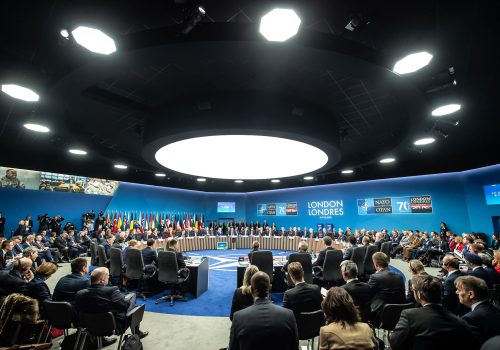
Commentary
NATO at 70: The Case for Optimism
Today, NATO advertises itself under version 3.0 — a forward-looking orientation to renewing the strength and readiness of its forces while addressing emerging challenges that confront the Alliance. If versions one and two addressed Cold War challenges and out-of-area operations, this third incarnation reinforces the solidarity of the Alliance through increased readiness, strengthened capabilities and credible deterrence to face new challenges. The Allies are engaging in new domains (space and cyber), reinvigorating the command structure and the political controls governing it, recognizing new competitors (China) and facing old adversaries (Russia) with firmness and resolve. There is much to be optimistic about in NATO’s agenda.

VIDEOS
HASC’s Gallagher on Trump Administration’s 2021 Navy Budget Request, USN-USMC Integration
Rep. Mike Gallagher, PhD, R-Wisc., member of the House Seapower and Projection Forces subcommittee, discusses the Trump administration's 2021 Navy budget request, the gap between 355-ship rhetoric and reality, cutting frigates and retiring first four Littoral Combat Ships, and USN-USMC integration and the need to move quickly to rebuild the fleet with Defense & Aerospace Report Editor Vago Muradian. The interview was conducted at the Amphibious Warship Industrial Base Coalition congressional breakfast on Capitol Hill on Feb. 11, 2020.

VIDEOS
Norway’s Eikenes on Svalbard, Russia, High North and NATO
Keith Eikenes, the deputy director general for security policy at Norway’s Ministry of Defense, discusses Svalbard, Russia, the Arctic and NATO’s engagement in the high north with Defense & Aerospace Report Editor Vago Muradian at the residence of Norway’s ambassador to the United States in Washington, DC. The ambassador hosted “Looking North: Conference on Security in the Arctic,” organized by the Atlantic Council think tank.

SNA 2020
Austal’s Ryder on Frigate Program, Unmanned and Manned Programs
Larry Ryder, senior director of business development and customer affairs at Austal, discusses how to address the US Navy’s unmanned vessels needs, manned warships like the Independence-Class Littoral Combat ship and Expeditionary Fast Transport and gives an update of FFG(X) program with Defense & Aerospace Report Editor Vago Muradian at the Surface Navy Association’s 2020 national symposium. We are an SNA media partner and our coverage was sponsored by GE Marine and Leonardo DRS.

SNA 2020
Northrop Grumman’s Leavitt on Manned, Unmanned Surface Combatants
Capt. Todd Leavitt, USN Ret., vice president for maritime systems at Northrop Grumman, discusses the company's manned and unmanned surface combatant strategy with Defense & Aerospace Report Editor Vago Muradian at the Surface Navy Association's 2020 national symposium. We are an SNA media partner and our coverage was sponsored by GE Marine and Leonardo DRS. Northrop Grumman sponsors our weekly Cyber Report and cyber coverage.

Cyber Report
Cyber Report: Cyber Training & Certification Across All Warfare Domains
On this week’s Cyber Report, Rear Adm. William Metts, USN Ret., the director for strategy and program integration at Northrop Grumman Cyber and Intelligence Mission Solutions, discusses cyber training and certification across all warfare domains with Defense & Aerospace Report Editor Vago Muradian. Northrop Grumman sponsors the Cyber Report and our cyber coverage.

SNA 2020
L3Harris’ Williams on US Navy Unmanned Vessel, Electronic Warfare Opportunities
Rear Adm. Rick Williams, USN Ret., a principal at L3Harris, discusses opportunities as the US Navy details its plans for large and medium displacement unmanned surface vessels as well as electronic warfare with Defense & Aerospace Report Editor Vago Muradian at the 2020 Surface Navy Association's national symposium. We are an SNA media partner and our coverage was sponsored by GE Marine and Leonardo DRS.

Cyber Report
Cyber Report: Proficiency Standards Across DoD & Government
On this week’s Cyber Report, Rear Adm. William Metts, USN Ret., the director for strategy and program integration at Northrop Grumman Cyber and Intelligence Mission Solutions, discusses setting cyber proficiency standards across DoD and the whole of government with Defense & Aerospace Report Editor Vago Muradian. Northrop Grumman sponsors the Cyber Report and our cyber coverage.
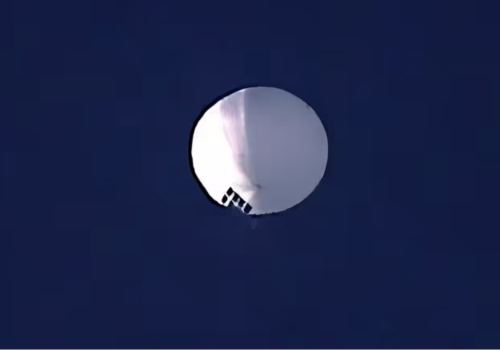
VAGO'S NOTEBOOK
It’s Not Just a Balloon: Not Stopping Chinese Spy Craft Sooner Sent Wrong Signal
America’s biggest challenge isn’t spending; it’s that leaders are time and again paralyzed by risk aversion. Paralyzed that they will either be seen as too provocative, or paralyzed by the notion that someone, anyone, might be hurt by what they do.
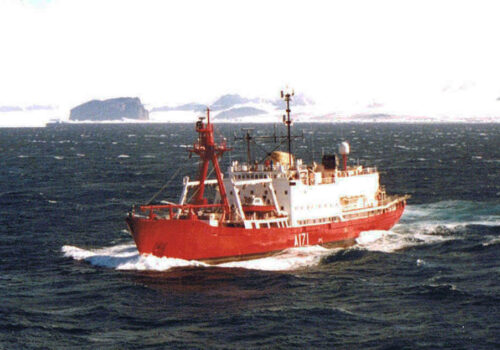
VAGO'S NOTEBOOK
US Must Learn Falklands War Lesson that Deterrence Matters
As the United States seek to avert war with China, it’s vital to remember the lessons of the Falklands War. The 1981 defense cuts by the Thatcher government, including retirement of the guard ship for the South Atlantic, HMS Endurance, convinced the Argentine junta that London were no longer committed to the Falklands and their defense. As deterring war is cheaper than fighting one, Washington must avoid sending Beijing the wrong signals that could lead to miscalculation that results in conflict.
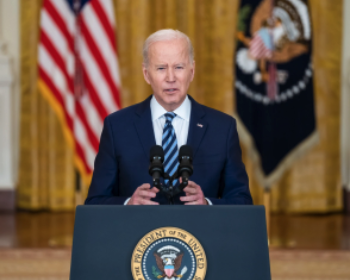
VAGO'S NOTEBOOK
Increase Aid to Ukraine, But Do it Quietly
So it’s time to do more and do it increasingly quietly. Transparency has its place, but so does secrecy. Detailing what’s going to Ukraine only helps Russia better prepare for what’s coming their way, or how depleted NATO’s own stocks are becoming.

THINK TANK CENTRAL
Hudson Institute’s Cronin on Indo-Pacific Strategy
Patrick Cronin, PhD, the chair for Asia-Pacific Security at the Hudson Institute, discusses the think tank’s new paper — “Strategies for the Indo-Pacific: Perceptions of the U.S. and Like-Minded Countries” — with Defense & Aerospace Report Editor Vago Muradian.

THINK TANK CENTRAL
Hudson Institute’s Cronin on Coronavirus Impact on China’s Leadership
Patrick Cronin, PhD, the chair for Asia-Pacific Security at the Hudson Institute, discusses the impact of the coronavirus on China's leadership especially President Xi Jinping with Defense & Aerospace Report Editor Vago Muradian.

THINK TANK CENTRAL
Maryland High School’s ‘Uighur Awareness Day’ Highlights Cybersecurity Issues with Chinese Social Media in the US
A student protest against China’s persecution of Uighurs at a Howard County high school highlights the potential cybersecurity implications of Americans using Chinese social media apps, according to Wilson Center analyst.

THINK TANK CENTRAL
Heritage Foundation’s Wood on New US Marine Corps Commandant’s Guidance, Budget, Hard Choices
Lt. Col. Dakota Wood, USMC Ret., senior fellow at the Heritage Foundation, discusses the guidance by Gen. David Berger, USMC, the new US Marine Corps commandant, to better prepare his force for rapidly emerging challenges, focusing on innovative concepts to deliver amphibious capability, importance of more numbers rather than fewer more “exquisite” platforms, the defense budget outlook and the need to make hard choices with Defense & Aerospace Report Editor Vago Muradian at the think tank’s Washington headquarters after an address by Berger.

![Defense & Aerospace Daily Podcast [Mar 04, 2026] Aboulafia and Michaels on Time Machines: Business Aviation’s Dynamic Journey](https://defaeroreport.com/wp-content/uploads/2026/03/Screenshot-2026-03-04-at-9.25.39-AM-536x386.png)
![Defense & Aerospace Daily Podcast [Mar 03, 2026] Ron Epstein on Iran Market Impacts & John Cofrancesco on Anthropic Blacklisting](https://defaeroreport.com/wp-content/uploads/2026/03/Screenshot-2026-03-03-at-2.38.31-PM-269x192.png)
![Defense & Aerospace Daily Podcast [Mar 02, 2026] Dov Zakheim on Iran & Look Ahead w/ Byron Callan](https://defaeroreport.com/wp-content/uploads/2026/03/Screenshot-2026-03-02-at-2.19.05-PM-269x192.png)
![The Downlink [Mar 01, 25] Space Tech: Skynopy – The Ground Station Play That May Have a Military Application](https://defaeroreport.com/wp-content/uploads/2021/10/TDL-WP-Featured-Image-269x192.jpeg)
![Defense & Aerospace Report Podcast [Mar 01 ’26 Business Report]](https://defaeroreport.com/wp-content/uploads/2026/03/Screenshot-2026-03-01-at-11.39.48-AM-269x192.png)

